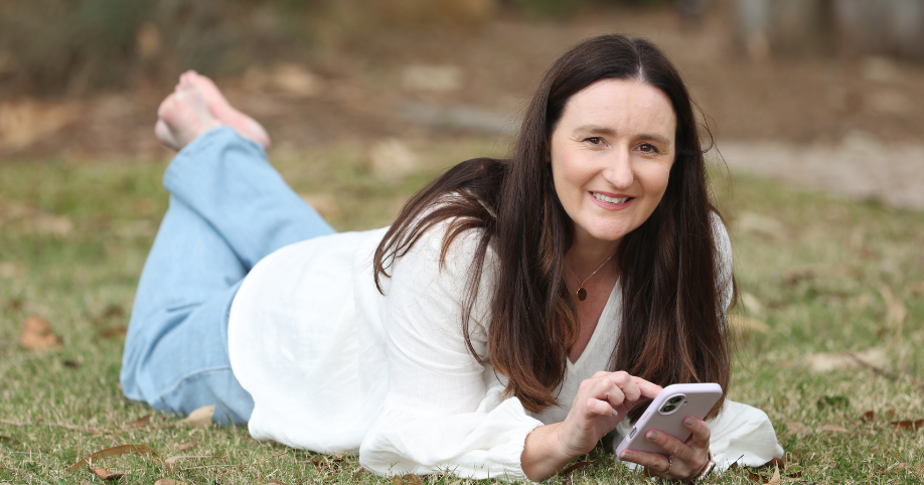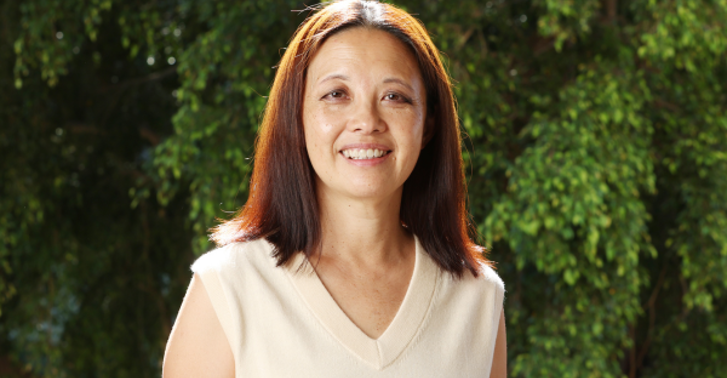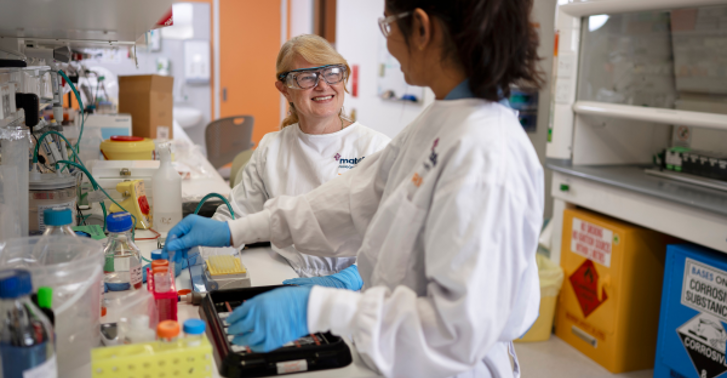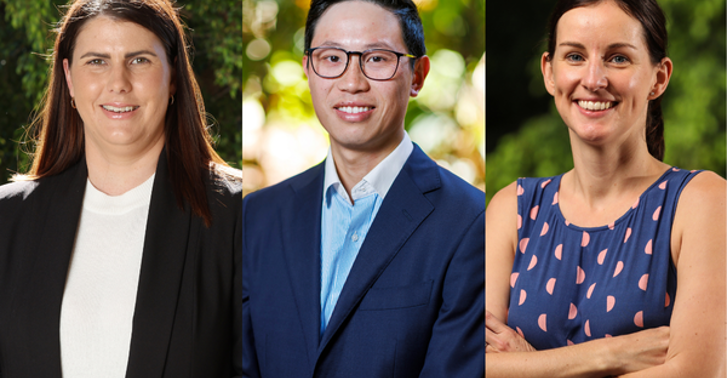
Catherine’s House for Mothers, Babies and Families, Mater’s integrated perinatal mental health centre, is launching a first-of-its-kind perinatal mindfulness app.
“Mater Parent Lounge” has been co-designed by clinicians and women with lived experience of perinatal mental health, and incorporates audio podcasts, links to resources, and information designed to reduce stress and improve quality of life for women from 16 weeks' gestation to six months post-partum.
Service Development and Research Team Leader Dr Grace Branjerdporn said the app allows women to access early, preventative support from the palm of their hand.
“We know that pregnancy and parenthood – that big period of change and adjustment – can be really challenging and is often when we see peaks in distress and anxiety,” Dr Branjerdporn said.
“This app supports mothers in this adjustment period and allows them to work through this in the comfort of their home and with their partner, child or unborn baby.”
Gold Coast mother Adele Rose understands firsthand the challenges of navigating perinatal mental health.
Ms Rose experienced postnatal depression following the birth of her daughter four years ago at Mater Mothers’ Private Brisbane.
“It’s incredibly difficult when you’re in the midst of it—when life feels heavy and you’re just trying to hold it all together. You may not be eating, sleeping, or able to manage everyday tasks,” Ms Rose said.
“I accessed the support available at Mater at the time, and it was exceptional, but the ‘Parent Lounge’ has the potential to elevate that support even further.”
The 42-year-old, who has contributed her lived experience to the app’s design, believes that having a dedicated resource will offer invaluable support to parents and their families.
“When you’re struggling, you might not be thinking about your support options—or they may not resonate with you. You could be feeling unmotivated or asking yourself, ‘How do I get through this?’” she said.
“But having an app at your fingertips makes it easier to manage the overwhelm. It provides a clear, accessible guide to help you slow down and breathe when you need it most.”
Ms Rose is particularly pleased with the app’s inclusion of mindfulness practices.
“Mindfulness was a game-changer for me,” she said. “It helped me build a stronger emotional connection with my baby. It allowed me to pause, ground myself, and take the next step forward—and those are skills I continue to use today.”
The Catherine’s House research team, in partnership with The University of Queensland and Mater Research, has been awarded the Queensland Mental Health Commission’s $250,000 Better Futures Grant.
The funds will ensure the app enhances access to healthcare and community support services for perinatal women from culturally and linguistically diverse (CALD) backgrounds.
“Many women in the CALD community remain disadvantaged due to lack of linguistic and cultural representation in healthcare apps and websites – this is something we really wanted to address,” Dr Branjerdporn said.
More than 22 per cent of people in Australia speak a language other than English in the home.
“We know that at Mater Mothers’ Hospital, of those requiring interpreter services, more than 15 per cent of patients require translation support for Mandarin and four per cent require it for Arabic, so this will help a significant cohort of patients,” she said.
“Giving a patient access to support in their preferred language adds another level of comfort and reassurance and given that 95 per cent of people have a phone, it will be an easily accessible resource.”
The team also plans to initially expand to include Vietnamese, Somali, and Farsi.
“Down the track the hope is also to create specific content for fathers and partners, and specialised groups, such as parents who have had birth trauma, perinatal loss or have a baby in the Neonatal Critical Care Unit,” Dr Branjerdporn said.
The project had previously received the Betty McGrath Healthcare Delivery and Innovation Seeding Grant, which is a joint initiative of Mater Health, Mater Research and Mater Foundation, to support early research and its translation into clinical practice.



